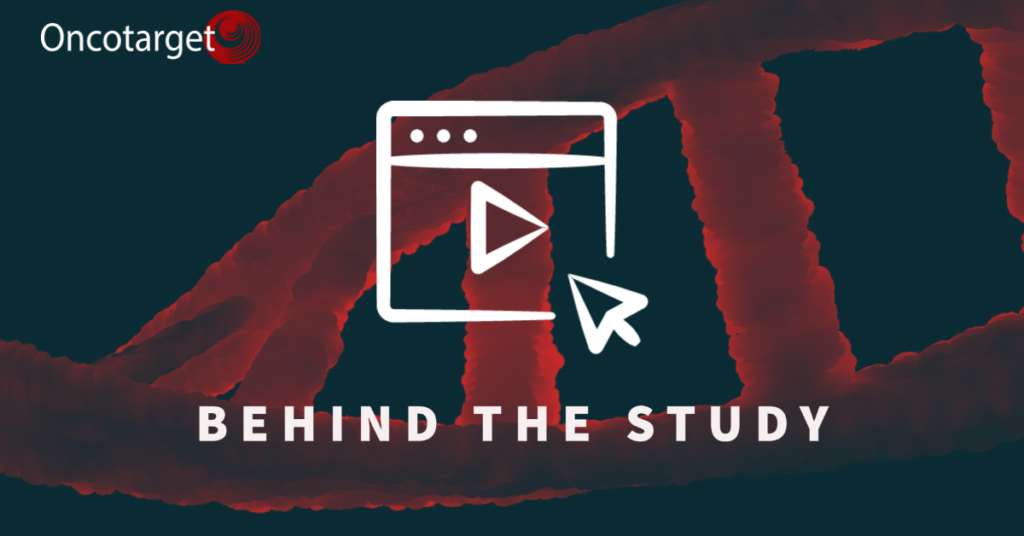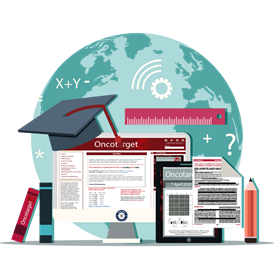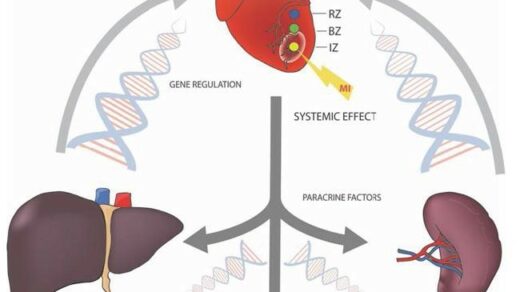Researchers discuss their paper published in Oncotarget, entitled: “CD44+/EPCAM+ cells detect a subpopulation of ALDH high cells in human non-small cell lung cancer: A chance for targeting cancer stem cells?”

The Behind the Study series transcribes videos of chosen researchers elaborating on their recent papers published in Oncotarget. Visit the Oncotarget YouTube channel for more insights from outstanding authors.
—
I’m Dr. Beatrice Aramini. I’m an assistant professor in thoracic surgery from the University of Modena and Reggio Emilia, and a thoracic surgeon at University Hospital of Modena in Italy. I started to develop translational research project during my Ph.D. at the Alma Mater Studiorum University of Bologna in Italy, and during my research fellowship at the Department of Cardiothoracic Surgery, Division of Thoracic and Lung Transplant Surgery at Columbia University Medical Center in New York. My field of interests are mainly based on lung cancer. I thank you very much Oncotarget Journal for giving me the opportunity to present and discuss my scientific work published in April 2020 and entitled “CD44+/EPCAM+ cells detect a subpopulation of ALDH high cells in human non-small cell lung cancer: A chance for targeting cancer stem cells?“
The origin of this research comes from September, 2016 when I wrote that this project with Professor Massimo Dominici, who is the chief of the division of Oncology at the University of Modena and Reggio Emilia in Modena. We got the approval from the ethical board committee in March, 2017. Then, we started to collect the human fresh lung cancer tissue samples from patients who underwent surgery for resectable non-small cell lung cancer. I would like to introduce Dr. Valentina Masciale, who is the biologist highly specialized in stem cells biology as well as stem cell cultures. Since her professional experience as Ph.D. student in the regenerative medicine at the Center of Regenerative medicine at University of Moderna and Reggio Emilia, under the supervisor of Professor Graziela Pellegrini and Professor Michele de Luca. She performed all the experiments in this project.
I would like also to thank all the other team members involved in this project as Dr. Giulia Grisendi, Dr. Federico Banchelli, and Professor Roberto D’Amico, Professor Antonino Maiorana, and Professor Uliano Morandi.
Dr. Valentina Masciale
With regards of the methodology of this project and after cell extraction from the surgical tumor specimen, we isolate cancer stem cell through cell sorting for the aldehyde dehydrogenase, the so called ALDH. In scientific literature, the most studied cancer stem cell marker for solid tumor are ALDH and CD44. If we consider cell sorting, it is known that ALDH is always present in cell, but you can have high ALDH in zymatic activity in cancer stem cell and low ALDH in cancer cells. For this reason, we cannot straightforward detect the cancer stem cell only based on the presence of these intra-cellular marker. Instead, it will be helpful to find a specific antigen for lung cancer stem cell.
Thus, we considered other known cancer stem cell markers as CD44 and the epithelial marker EPCAM. In particular, the scientific community has never correlated together the superficial marker CD44 and the EPCAM for the detection of cancer stem cell. In this aspect, it may be very useful for the future lung cancer stem cell targeting. In particular, EPCAM is an epithelial cell adhesion molecule expressed by solid tumor of epithelial origin, such as non-small cell lung cancer that we are studying. Moreover, it will recognize that EPCAM positive cells possess tumor initiating potential and EPCAM has already been used as a marker of ovarian cancer stem cells. From this finding, we decided to detect the CD44 positive, EPCAM positive population comparing with ALDH high cell sub-population.
Dr. Beatrice Aramini
The aim of our research was to compare they ALDH high cells with the double positive superficial CD44 EPCAM cells, in order to better define the superficial antigens of the ALDH high cells. We thought that the identification of superficial antigens may trigger new therapeutic approaches against cancer stem cells in non-small cell lung cancer. The main approach was a cyto fluorimetric analysis of ALDH expression and positivity for CD44 EPCAM on primary cell population obtained from 23 patients harboring non-small cell lung cancer.
The most interesting results of our research was that we found a highly positive correlation between the expression of the ALDH high cells and the expression of CD 44 positive, EPCAM positive cells, although no correlation was found between ALDH high cells and CD44 positive cells. This aspect is very important because nobody until now demonstrating in human lung cancer tissue that there is a high correlation between these two populations of cancer stem cells. If we consider the role that cancer stem cells may have into the tumor in terms of resistance to common treatments, as well as also in the promotion of cancer relapse, we can better understand the importance of our results for further settings of new target therapies against cancer stem cells.
In summary, our research is an important standing point for further studies that are needed to better define the role of CD44 positive, EPCAM positive superficial marker highlighting lung cancer stem cells. This will be helpful to use this marker for new target therapies and more focused treatments against non-small cell lung cancer. Thank you.
—
Oncotarget is a unique platform designed to house scientific studies in a journal format that is available for anyone to read—without a paywall making access more difficult. This means information that has the potential to benefit our societies from the inside out can be shared with friends, neighbors, colleagues and other researchers, far and wide.
For media inquiries, please contact media@impactjournals.com.



